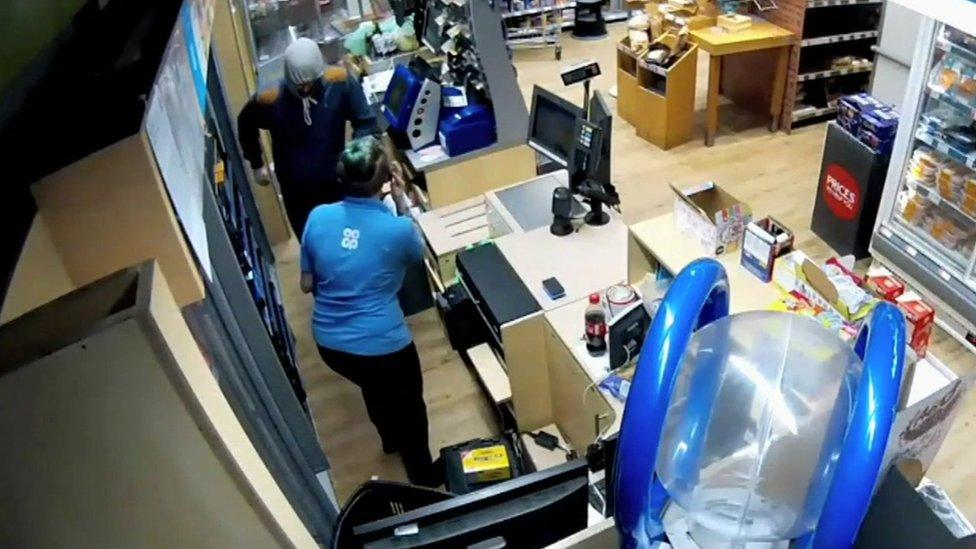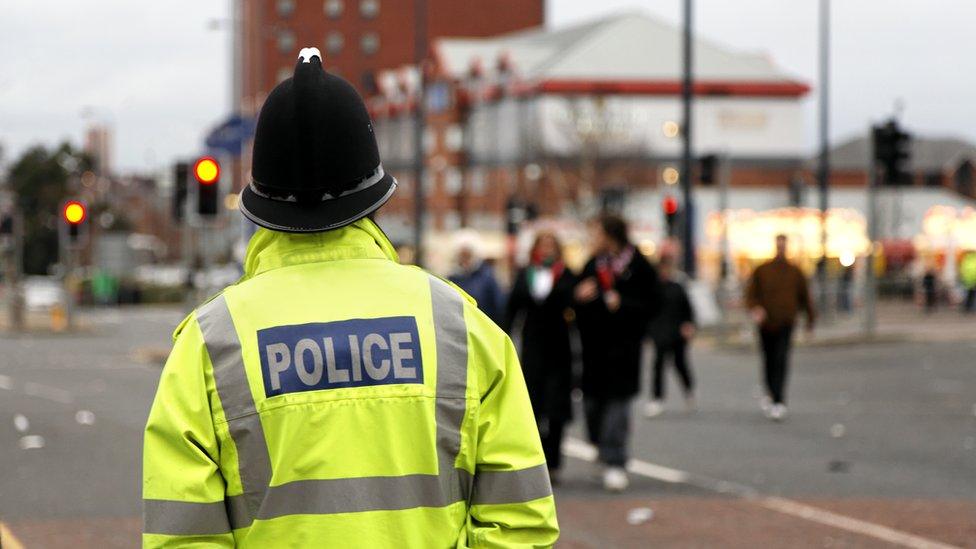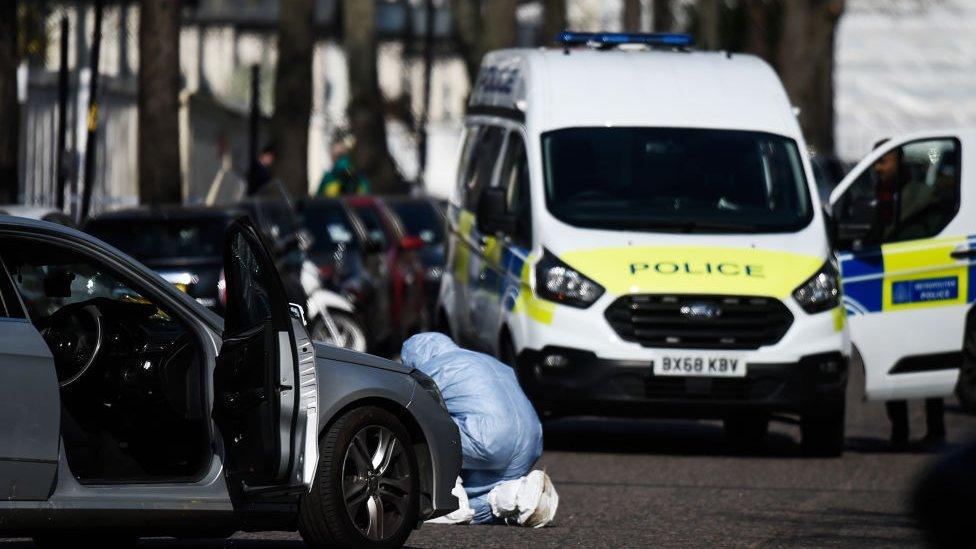Violent retail crime leading to PTSD for shop staff, report says
- Published
'I thought I was going to get stabbed,' says shop worker recalling robbery
Shop workers are experiencing "severe mental health consequences" as a result of violent store crime, a study says.
The report , externalby City, University of London, says a rise in violent retail crime is causing "long-lasting anxiety and post-traumatic stress disorder" among workers in the sector.
More than 42,000 assaults or threats were recorded , externalin the industry in 2018.
Dr Emmeline Taylor, the report's author, says government action is "urgently needed" to protect staff.
"All too frequently, shop workers are suffering physical injuries, as well as chronic and life changing mental health consequences of violence, such as long-term anxiety and post-traumatic stress disorder," the report states.
According to the research, the four main scenarios that lead to violent interactions are: encountering shoplifters, enforcing age-restrictions on the sale of goods, hate-crime related incidents and armed and unarmed robberies.
Home Office data showed that assaults and threats against sector staff rose from 524 incidents per 1,000 premises in 2016, to 1,433 in 2017.
And earlier this year, the British Retail Consortium said around 115 workers in the UK faced threats or assaults every day.
'Axes, needles, machetes and knives'
Jean-Marie Hughes - a 33-year-old former retail worker who now helps other staff overcome traumatic events - told researchers that in the last 12 months she knew of colleagues who had been "physically injured with axes, needles, machetes and knives".
"I know of colleagues that have been dragged through their store, who have had knives held to their throats, or been made to kneel down with guns or other weapons held at their head," she said.
"They have been screamed at, threatened, and left scared to travel home from work.
"The impact of these incidents last a lifetime, not just on those directly involved but it affects their colleagues, their families and their communities."

Jean-Marie Hughes said she "bounced back" from a robbery - but other colleagues were not so lucky
Reflecting on a store robbery that involved her and other staff being threatened with a needle, Ms Hughes told the BBC that such experiences "breed fear among the team".
"I was just shocked, it took me a while to process what actually happened," she said. "But each one of us reacted differently.
"I bounced back but some didn't and they just didn't want to be in the store following that.
"They were telling me they were struggling sleeping.
"It does create a different level of fear, even when you're walking down the street and you hear something, or in the store, you think something's happening that may not be.
"You're just waiting for something else to happen."

One Co-op worker in Manchester told the BBC an attack on his store had left a colleague "beside herself"
The report - funded by the Co-op - collated data from the Home Office, British Retail Consortium, Association of Convenience Stores and the Union of Shop, Distributive and Allied Workers.
Author Dr Taylor - a criminologist studying the effect of store crime on workers - said the report intended to give a better understanding of the human experience behind the rise in retail crime.
She interviewed both store workers and perpetrators of violence as part of her research.
"Multiple data sources show that the frequency and severity of violence towards shop workers is increasing" she said.
"The strain of constant abuse and fear of physical violence is causing some shop workers to change their shift pattern, their place of work or, in the worst cases, terminate their employment entirely."
- Published16 August 2019

- Published19 August 2019

- Published5 September 2019
